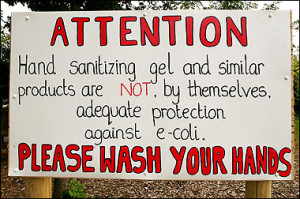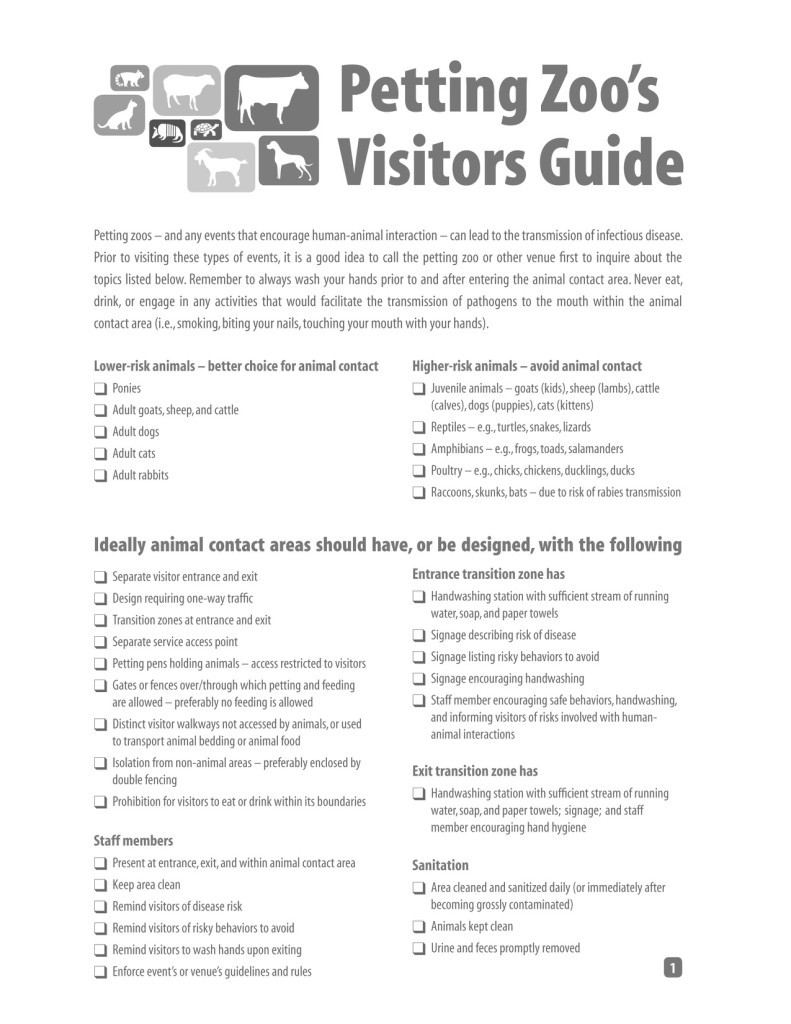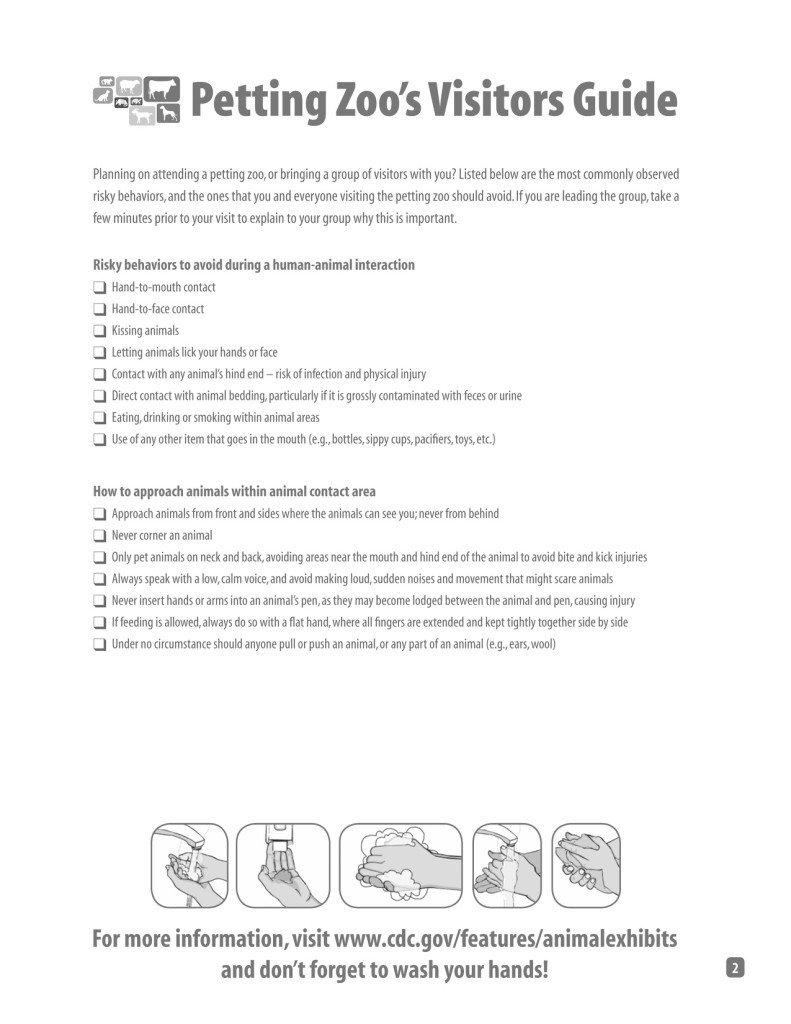As the weather improves and visits to outdoor farms increase, the Health and Safety Executive for Northern Ireland (HSENI) is reminding parents and teachers of the importance of schoolchildren washing their hands after being in contact with animals.
 A visit to a farm and the chance to see and handle animals is an exciting time for young children.
A visit to a farm and the chance to see and handle animals is an exciting time for young children.
However, it is vitally important to remember that farm animals can carry harmful bacteria such as E. coli, which can be transferred to children through contact with the animal or its faeces. If the child then goes on to eat, drink, or put their hands near their mouth, without washing their hands, there is a real risk of serious infection.
Urging everyone to follow simple hygiene steps to avoid spoiling anyone’s fun, Malcolm Downey who heads HSENI’s farm safety team said: “Anti-bacterial gels and wipes alone are not a substitute for properly washing your hands.”
Sorry Malcolm, it’s not that simple.
Our paper on human-animal interactions published in Zoonoses and Public Health, includes a 2-page checklist for parents, and the teachers who book these events.
Gonzalo Erdozain, Kate KuKanich, Chapman and I have all seen microbiologically terrible practices at petting zoos or in homes, and read about them from around the world, so we thought, maybe we should try and provide some guidance.
The uniting factor is we all have kids, and in my case, grandkids, and keep adding more.
 In Brisbane, they have the Ekka, something like the Texas State Fair. The petting zoo was absolute madness, and after living in Brisbane and hanging out with micro-types I got the message, don’t go to the Ekka, you’ll get sick. We didn’t go in 2013: 49 people, primarily kids, got sick from E. coli O157 (and in typical Queensland style, the outbreak has never been written up, there has been no follow-up, nothing; guess it would be bad for agriculture).
In Brisbane, they have the Ekka, something like the Texas State Fair. The petting zoo was absolute madness, and after living in Brisbane and hanging out with micro-types I got the message, don’t go to the Ekka, you’ll get sick. We didn’t go in 2013: 49 people, primarily kids, got sick from E. coli O157 (and in typical Queensland style, the outbreak has never been written up, there has been no follow-up, nothing; guess it would be bad for agriculture).
North Carolina has had repeated and terrible outbreaks.
As a father of five daughters, I’ve had many requests over 20 years to go on a school trip to see the animals. As a food safety type, I’ve been routinely concerned about best practices. The other parents may dislike microbiology, but I’m concerned with the health and safety of the children involved.
A table of petting zoo outbreaks is available at https://barfblog.com/wp-content/uploads/2014/04/Petting-Zoo-Outbreaks-Table-4-8-14.xlsx.
Best practices for planning events encouraging human-animal interations
Zoonoses and Public Health 62:90-99
Erdozain , K. KuKanich , B. Chapman and D. Powell, 2015
http://onlinelibrary.wiley.com/doi/10.1111/zph.12117/abstract?deniedAccess
Educational events encouraging human–animal interaction include the risk of zoonotic disease transmission. ‘It is estimated that 14% of all disease in the USA caused by Campylobacter spp., Cryptosporidium spp., Shiga toxin-producing Escherichia coli (STEC) O157, non-O157 STECs, Listeria monocytogenes, nontyphoidal Salmonella enterica and Yersinia enterocolitica were attributable to animal contact. This article reviews best practices for organizing events where human–animal interactions are encouraged, with the objective of lowering the risk of zoonotic disease transmission.


